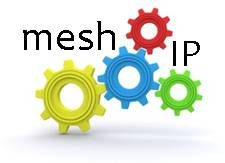 If—and it certainly appears to be the case—cloud-based computing, software as a service (SaaS) and mobile are the next wave of technology, it would make sense that venture capital orientates itself along similar lines. That is certainly the view of Notion Capital. Jos White, one of the two founding brothers was in London recently and spoke to The Wall Street Journal, Europe.
If—and it certainly appears to be the case—cloud-based computing, software as a service (SaaS) and mobile are the next wave of technology, it would make sense that venture capital orientates itself along similar lines. That is certainly the view of Notion Capital. Jos White, one of the two founding brothers was in London recently and spoke to The Wall Street Journal, Europe.
Mr. White, and his brother Ben, were the people behind MessageLabs, a cloud-based anti-virus and anti-spam company and one of Europe’s biggest tech success stories.
In founding their own company, the brothers certainly appeared to go out of their way to make it as hard as they could for themselves. They launched in 2000, the year the first dotcom boom imploded, based themselves in a converted barn in the heart of the British countryside in Gloucestershire, miles from anywhere (“I always joke that when Ben and I read the manual about setting up a technology business we misread where it said you should locate yourself in Silicon Valley and read it as Stroud Valley,” he joked), and then were looking to IPO in late 2008 just as the financial world collapsed.
Not that it seems to have done them any harm. When the company was sold to Symantec in 2008 for $700 million—one of Europe’s major tech M&A deals—it was processing 3 billion emails a day making it the largest handler of email in the world.
Rather than pocketing the money and retiring to Gloucestershire, the two decided to reinvest back into the community and help others, founding Notion in autumn 2009. Mr. White argues that what the European V.C. market needs is more successful entrepreneurs helping the upcoming start ups.
“I think in Europe, there are far too many [V.C.] teams that just have a finance background. That’s partly because there are not the serial entrepreneurs around for them to start being investors.
More focus on money, less on hype
“An investor, for me, is someone that is able to invest not only their money but also able to bring to the table relevant experience of the problems and the challenges and the opportunities you are facing.”
Sticking to what they know best, the Whites only invest in SaaS companies. “We call it Internet-based services. Anything that is one-to-many and hosted on the Internet, with recurring revenue, with high visibility revenue, low churn, B2B (business to business), in Europe—that’s our focus. It’s fairly specific.
“B2B is less sexy. We quite like that, because there is less competition and also their models tend to be more financially valued and driven, whereas consumer models tend to be hype-driven.”
Having worked in both Europe and the U.S., Mr. White is, like many European V.C.s critical of Europe’s attitude to risk, but does see other competitive advantages.
“It is a real cliché but in America if you fail they genuinely think you are therefore better prepared to succeed the next time and here if you fail they say you should go and get a proper job,” he said. While there are European cultural elements to this, he also thinks it is to do with the lack of maturity in the European technology market.
“Once you get serial entrepreneurs who reinvest the confidence and the experience they bring, that generates more money. But more importantly it generates a confidence of an attitude that you can build big businesses, that you know how to do it, you know how to partner with people, you know how to recognize people who can do it. It is just a matter of time for the recycling to happen which develops an ecosystem.”
But drawing from his own experiences, he says that the nature of the European tech market, highly-divided, highly-fragmented, means European companies simply have to be better at going international. It was certainly his experience with MessageLabs.
European experience was strategic advantage
“We had to learn to enter new markets. We got very good at how do we actually adapt the service to a different language or culture, how do we actually prioritize different geographies.
“Our competitor focused on the U.S. and as soon as they tried to go beyond the U.S. they struggled, because they did not have this market entry expertise. I think that’s one of the advantages of being European.”
One of MessageLabs greatest marketing tools—they may not have been the first to do this, but they were certainly one of the most effective—was the little tag added to every email they processed.
“When we set up the business we had no idea that that was going to be such an effective marketing tool for us. We just thought we should put a stamp of approval on every e-mail.” As it turned out, it was one of the smartest moves they could have made.
- The Customer Edge Drives the Need for NaaS - June 25, 2023
- Blockchain Evolves And Secures - January 13, 2019
- Bessemer Ventures’ 2018 Cloud Computing Trends - February 25, 2018

